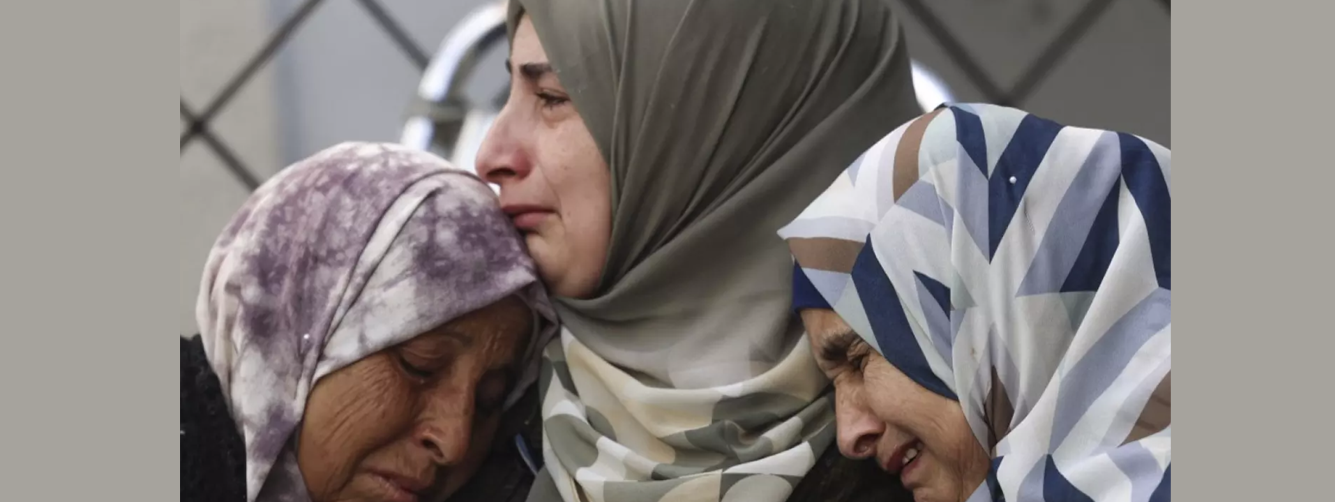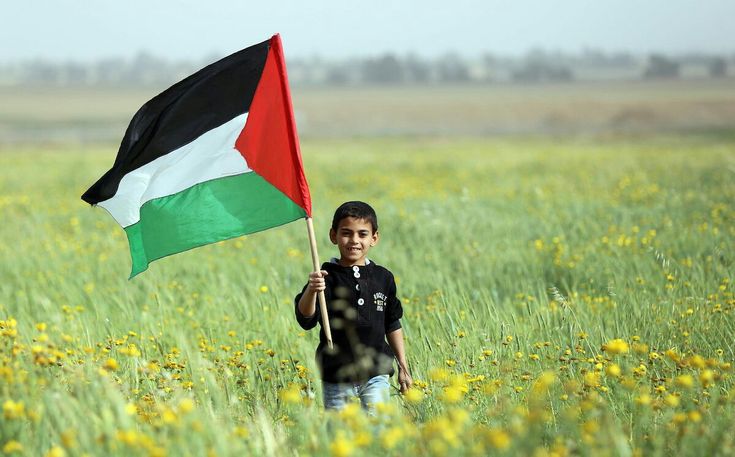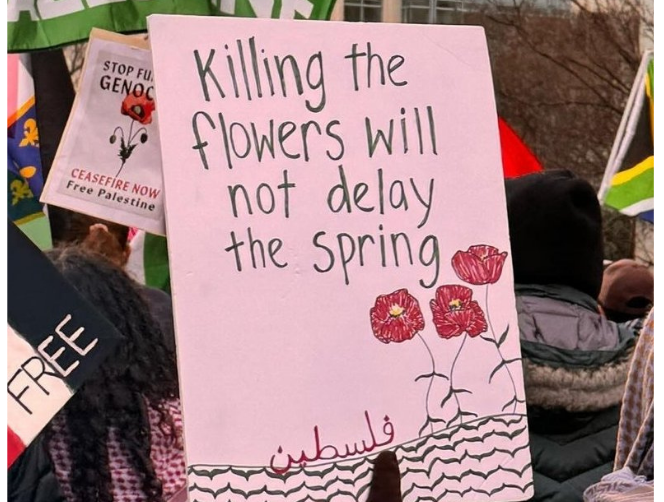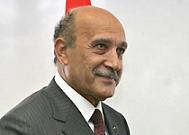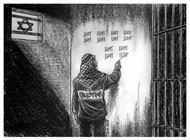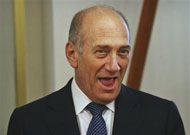On January 10 49BCE, Julius Caesar led his army across the River Rubicon in defiance of the Roman Senate claiming that “the die is cast”. This bold maneuver initiated a civil war with his adversary Pompey but ultimately led to Caesar’s dictatorship over the Roman Empire.
“The die is cast” referred to the predicament facing Caesar. Either he could succumb to the wishes of his superiors and back down, or he could fight for what he believed was right. The phrase represents a point of no return, an idea that cannot be retracted, suppressed, compromised, where one surrenders to fate and a line that once crossed, cannot be reverted back to as a feasible option.
Israel is on the brink of this decision.
Israeli Prime Minster Ehud Olmert, speaking after a five day incursion into the northern Gaza Strip, declared that the objective was “reducing rocket fire and weakening Hamas”. If this was the justification for the assault, then Olmert and Israel failed in both respects. Israel did not manage to quell rocket attacks as moments after they started their withdrawal on March 3, Palestinian groups fired three Grad rockets at Ashkelon. With regard to “weakening Hamas”, the Israeli army reported that 90% of those who were killed during the operations execution were activists responsible for rocket attacks on Israeli territory. However, Israeli Human Rights group B’Tselem greatly contradicted army estimates by highlighting that 106 Palestinians were killed during the invasion. Half of the casualties were unarmed civilians while 25 were under the age of 18. Hamas was not significantly weakened by the attack, instead claiming “victory”. Israel of all should be aware that using intimidation and launching incessant attacks on opposition forces does not weaken them but on the contrary stiffens their resolve, creates more solidarity and broadens their reputation.
The issue is not over who fared better in this heinous act of violence – the aggressor or those targeted – but the strategy taken by Israel and the rhetoric they used to legitimize such actions. With the recent incursion into the Gaza Strip, the Israeli government has now established its boundaries and shown the measures it is willing to adopt in order to prevent more rocket attacks on Israel. Olmert pledged “we will not end before we achieve our goal and our first goal is a significant reduction of Qassam and Grad rocket fire against Israeli citizens”. In the most recent instance, rocket attacks on Israel were met with a five day attack which killed over one hundred Palestinians. Israel has raised the bar of expectation and cannot be seen to settle for less, especially taking into consideration the verbose nature of internal Israeli politics.
Another area for concern is the deluge of rhetoric from Israeli officials accompanying Olmert. It is as if Israel has been buoyed by the events in Gaza and thus becoming overconfident. The majority of these remarks are worryingly from Olmert’s closest security advisors. These are the 3D’s – Dichter, Dagan and Diskin (Internal Security Minister, Chief of Mossad and head of Shin Bet respectively). All are depicted as “men of action” who are skeptical about agreeing to a ceasefire with Hamas, fearing the group would simply use the period to rearm. In addition, there is Israeli Army chief Gabi Ashkenazi who refuses to underestimate Hamas and constantly reiterates their potential threat, while one cannot omit Defense Minister Ehud Barak who incessantly warns that a full scale operation could be imminent, maintaining that “we will use force to change the situation”.
One cannot discuss the comments from the Israeli camp without including the speech from Barak’s deputy Maten Vilani who, whether intentionally or not, said that if Qassam fire escalated or if further ranging rockets were used Gaza “will bring upon themselves a bigger shoah because we will use all our might to defend ourselves”. Speaking to Israelis, one can deduce rather quickly that the word “shoah” can be literally translated as “disaster” but is normally reserved for the “holocaust”. The fact that this word slipped out in the context of Gaza insinuates that the association has already been made amongst the higher echelons of the Israeli security staff.
Applying this kind of pressure, riddled with such promises and threats, may compel the Israeli government to journey down a path they are not willing or even capable of completing. They have placed themselves in an all or nothing scenario. There are already calls from Shas Chairman Eli Yishai, a coalition member, that an emergency government should be formed as a result of the climate in Gaza. Despite what Ehud Barak says, Israel is not prepared for an invasion of Gaza. They cannot afford another humiliating loss like the one suffered in southern Lebanon at the hands of Hezbollah in the summer of 2006 (an assault in Gaza could attract the attention of Hezbollah); the terrain in Gaza is just as unpredictable if not more so than Lebanon; an invasion would cement Israel once again in Gaza (a burden they do not welcome); there is no exit strategy or solution for Gaza if an attack was successful; the public does not accept risking the lives of Israeli soldiers and more importantly Israel cannot guarantee that an invasion would extinguish the threat. Israel would invariably be locked in a battle with insurgents adopting guerilla style warfare. The Israeli public seems to recognize the negative ramifications of action in Gaza with a Ha’aretz poll revealing that 64% of Israelis want their government to discuss peace with Hamas.
US Secretary of State Condoleezza Rice is in the region this week to promote peace but not a deal between Hamas and Israel, rather preferring to use her influence to persuade President Mahmoud Abbas to reconvene peace talks with Israel after he abandoned them as a result of the Israeli offensive in Gaza. Secretary Rice has blamed Hamas for sabotaging the peace process by firing rockets into Israel and generally called for the violence to stop without endorsing the idea of a ceasefire with Hamas per se.
Prime Minister Olmert and President Shimon Peres concur with this motion. Olmert has told Rice that he wants to continue the peace process with the PA but stipulates that they will not be deterred from attacking Gaza. However, the two should not be mutually exclusive. How can Abbas rejoin meetings with Olmert while Palestinians die at the very hands of his peace partner? This is especially relevant taking into account the rising tensions in the West Bank towns of Nablus, Hebron, Bethlehem and even Ramallah in response to events in Gaza.
Before Secretary Rice arrived in the region, President Abbas voiced his openness to mediate a solution between Hamas and Israel. Meanwhile, President Peres has adamantly asserted that Hamas doesn’t want peace, will not recognize Israel and can alleviate the suffering of their people simply by ceasing rockets attacks on Israel. On the contrary, former Israeli deputy foreign minister Yossi Beilin has publicly announced that Hamas has expressed their willingness for an extended hudna (ceasefire) on many occasions. However, can Israel really hold a ceasefire with a group influenced by the fundamentalist Muslim Brotherhood and a movement deemed a “terrorist” organization by their most treasured allies? In any event, does Hamas have the authority in Gaza to stop rocket attacks from other Palestinian groups? They managed to abide by a ceasefire with Israel six months either side of the Legislative Elections in 2006, but the situation has changed dramatically since then.
Some analysts recommend that the answer lies in Fateh and Hamas pursuing dialogue and returning to a power sharing agreement similar to the one brokered by King Abdullah of Saudi Arabia in Mecca in early 2007. They maintain that if the UN can instigate a peace deal between rival factions in Kenya amidst all the violence, there must be hope for Fateh and Hamas. But, there are limitations evident in the Palestinian paradigm. First of all the peace mediated by Kofi Annan in Kenya is still in its embryonic stages so it is too early to tell whether the two parties can collaborate. Secondly, Israel forbids any dialogue between Fateh and Hamas. Thirdly, the Mecca Agreement was tried and failed mainly because of point four; the two groups are not only a complete dichotomy of each other ideologically speaking but they possess no trust in or respect for each other.
The hatred is deep rooted. Fateh views Hamas as an unpredictable force governed by their strict adherence to Islam and a group that brutally seized the Gaza Strip in June 2007. Hamas, on the other hand, has it imprinted into their psyche that Fateh are a power hungry, corrupt entity that makes concessions with Israel and a group responsible for inflicting abuse on them in the past. Further still, a recent article by David Rose for Vanity Fair has revealed how embedded the US has been in Palestinian politics since Hamas won the election in January 2006. According to the article, the US have been so intent and devoted to toppling Hamas after they were elected, that they even conducted talks with and enlisted the services of Mohammed Dahlan, the Fateh strongman in Gaza, to ensure the demise of the Islamic group. Dahlan, a despised character within Hamas for his treatment of their members, was described by President Bush as a “good, solid leader”. The US was so insistent that affirmative action be taken against Hamas that they ignored the deteriorating health of Fateh and applied so much pressure on Abbas that their true objectives were exposed and subsequently botched; Hamas sensed the tension and launched a preemptive strike on Fateh. Why would Hamas believe that the situation would be different second time round?
Can these two Palestinian factions simply forgive and forget?
As one can see the prospects for peace are slim. President Abbas has satisfied certain sections of Palestinian society by temporarily dissolving peace talks with Israel but will he be able to withstand pressure from the US to resume? It seems as if Abbas is in dire need of instruction and direction. After the Israeli assault on Gaza, Abbas proclaimed he was “following the aggression against our people in Gaza”. Abbas has been forced to assume the position of a “following” spectator.
During Kosovo’s recent declaration of independence, Abbas declared that Palestine would not follow suit but look to their “Arab brothers” for consultation. What have his paternalistic counsel offered him in the wake of Gaza? Saudi Arabia condemned Israel for “emulating Nazi war crimes” and Egypt reopened the Rafah Crossing for 27 ambulances to reach the injured people in Gaza while cancelling their visit to Israel in protest. The international community, including UN Secretary-General Ban Ki-Moon, has denounced the violence on both sides for a ninth month in succession without any positive intervention. The use of words will not reassure the Palestinians in the slightest.
Silence just reinforces the Israeli argument that they are acting in “self defense” and defends statements, such as the one by vice premier Haim Ramon who asked why any “reasonable” country would object to Israeli actions in Gaza as it will ultimately “save lives on both sides”.
The rockets launched into Israel by Hamas and other Palestinian groups are acts of violence, in violation of international law, and are not to be excused. Nevertheless, the answer is not to combat this by vastly increasing the degree of violence and further violating international law.
It is difficult to predict if a full scale invasion of Gaza can be avoided at this stage, taking into consideration Israeli rhetoric and the obstacles currently hindering negotiation either between Hamas and Fateh or Hamas and Israel. Adopting a policy of zero tolerance toward Hamas and discarding the diplomatic solution will not eliminate Hamas but empower them. Neglected from deliberation and isolated from the world, the group will seek solace in the hands of extremism. The consequences of such a shift could prove highly damaging for the Israeli public and to the Palestinian people as a whole.





